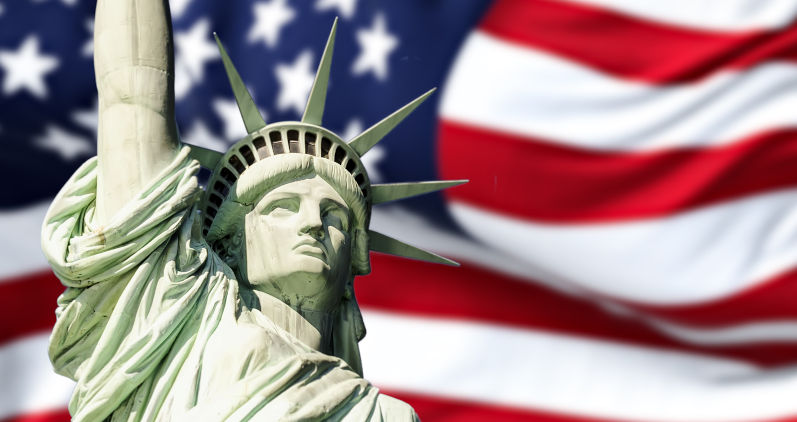When the centre cannot hold: US polarisation is driving the word away
May 5, 2025
Once admired for its democratic institutions, cultural dynamism, and global leadership, the United States now finds itself in a different spotlight.
The collapse of the political centre — a space once occupied by moderates capable of compromise — has left America lurching between ideological extremes. And the world is watching, not with awe, but with alarm.
Political polarisation in the US has turned governance into trench warfare. Robert Reich, a former secretary for labour, has described today’s politics as a regime warping the Constitution, undermining the rule of law and threatening civil society.
Reich laments that within the Republican Party dissent has largely vanished, with ideological loyalty to President Donald Trump and Trumpism now outweighing institutional checks.
On the other side, Democrats appear fractured between centrists and progressives, unified more by their opposition to Trump than by any common policy compass. The middle, once a source of stability and shared values, has been hollowed out.
But the story doesn’t end at America’s borders. The consequences of this internal disarray ripple outward, reshaping how other countries engage with — or detach from — the US.
Start with cultural influence. For decades since World War II, American values of freedom and individual rights were admired and often emulated. But in recent years, those values have become entangled in fierce domestic culture wars. Foe example, debates over gender identity, religion and educational content now dominate headlines and social media.
To many societies — especially in the Global South — this version of liberalism feels intrusive. Some would even say America’s “anything goes” attitude is cultural imperialism. Muslim-majority countries and conservative Asian societies have grown wary as American social values, embedded in media and even foreign aid, clash with local norms. What was once soft power is increasingly viewed as moral overreach.
On the economic front, the shift has been no less jarring. Trump-era policies reasserted America’s might-is-right approach: tariffs used as political weapons, alliances treated as transactional, and global trade threatened by unilateralism.
Small and medium-sized economies have taken note. Many are turning toward regional co-operation and hedging against US volatility. The rise of BRICS, efforts to settle trade in local currencies are defensive moves – responses to what is now perceived as US coercion rather than partnership.
This shift is also visible in how the world perceives America’s approach to China. While many nations are wary of aspects of China’s rise, there is a growing sense that the US cannot tolerate the idea of another major power ascending.
The American effort to contain China now appears less like strategic competition and more like reflexive hostility. The disrespectful, often hectoring tone in dealing with Beijing — marked by sanctions, rhetoric, and ideological framing — may be reaching its limits.
Overplaying the “othering” of China has triggered a counter-reaction: not necessarily endorsement of Chinese policies, but a measure of sympathy for a country seen as being treated unfairly.
In many capitals, there is a yearning for diplomacy – an art that seems to have atrophied as American domestic politics have become so toxic that it has affected how the US projects itself. Its international engagement is laced with combative, bad-faith language. The world hears this tone, and it diminishes America’s image as a credible or constructive global partner.
There is also a growing unease about the American economy itself. For years, much of the world has depended on US consumer demand, often financed by debt. But the assumption that the American market will always absorb global exports is starting to feel risky.
The debt ceiling standoffs between the two parties, government shutdown threats and declining fiscal discipline — especially under administrations that prioritise tax cuts without matching revenues — undermine confidence. The uncomfortable question many are now asking is, what if the world’s biggest buyer one day simply can’t pay?
Trumpism accelerates all of this. It embraces disruption as strategy – stirring up geopolitical tensions to test limits, assert dominance, or seek leverage. But countries being stirred are far from pleased. They see an America less interested in rules and more in flexing raw power. In response, they are investing in resilience – building new alliances, reinforcing sovereignty, and looking elsewhere for leadership.
Even traditional allies are recalibrating. The reliability of US foreign policy has eroded under the weight of domestic swings. From abandoning the Paris Agreement to paralysing the World Trade Organisation’s dispute resolution system, and nearly withdrawing from the World Health Organisation, the US has repeatedly undermined the very multilateral frameworks it once helped build.
The erratic back-and-forth between administrations — marked by unilateral decisions and ideological shifts — makes sustained co-operation nearly impossible. Foreign governments increasingly prepare for two Americas: one supposedly internationalist, another unilateral and transactional.
The US has become a schizophrenic superpower – difficult to engage, harder to trust.
What unites all these threads is a sense that the centre — politically, economically, morally — has collapsed. Without it, American democracy cannot function properly. Without it, US foreign policy lacks coherence. And without it, the world sees less of a leader and more of a wild card.
This moment calls for a reckoning. If the US wishes to regain credibility on the world stage, it must begin at home. Rebuilding the political centre is not nostalgic idealism – it is strategic necessity.
Moderation is not weakness; it is the engine of stable institutions. The world needs a US that can speak with one voice – not a country at war with itself.
Otherwise, the rest of the world will continue what it has already begun: moving on.


